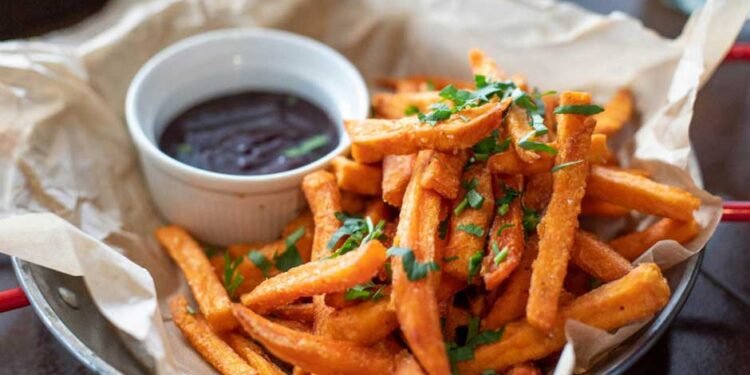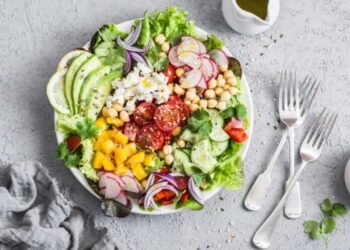Do you ever find yourself feeling drained after eating certain meals or maybe struggling to keep your energy levels steady throughout the day? Carbs often get a bad reputation, especially when it comes to maintaining a balanced diet. Many people think of carbs as the enemy, picturing only sugary snacks and refined bread. However, not all carbs are created equal. Nutrient-dense carbs can be a great source of energy, vitamins, and minerals that your body needs to thrive, and here are some side recipes you’ll love.
In this blog, we will share some of the best nutrient-dense carbs that can help you maintain a balanced and energizing diet so you can feel your best every day.
What Are Nutrient-Dense Carbs?
Nutrient-dense carbs are foods that provide not only carbohydrates for energy but also contain a wealth of vitamins, minerals, and fiber. These types of carbs come from whole, unprocessed foods that nourish the body in a healthy way. Unlike refined carbs, which often lack essential nutrients, nutrient-dense carbs offer a lot more value for your overall well-being.
Examples of nutrient-dense carbs include fruits, vegetables, whole grains, and legumes. These foods help your body stay energized and full for longer periods. They also support other functions like digestion and immune health, making them a crucial part of a well-rounded diet.
Here are some nutrient-dense carbs that are great for you:
1.Starchy Vegetables Are Full of Benefits
Starchy vegetables, like sweet potatoes, squash, and corn, are a great source of nutrient-dense carbs. Sweet potatoes, in particular, are rich in beta-carotene, which helps support eye health. They are also loaded with potassium, which plays an important role in managing blood pressure.
Preparing starchy vegetables can be fun, too! For example, baking some crispy fries in the oven using sweet potatoes is a simple way to enjoy a tasty, nutrient-dense snack. Starchy vegetables provide more fiber than refined grains, helping to keep your blood sugar levels balanced and providing a lasting source of energy.
2.Legumes for a Protein and Carb Combo
Legumes, such as lentils, black beans, chickpeas, and peas, are powerhouses of both protein and carbohydrates. These foods are not only filling but also loaded with essential nutrients like iron, folate, and fiber. Legumes are a great choice for those looking to balance their carb intake while getting enough plant-based protein.
Adding legumes to your diet can be as easy as tossing some chickpeas into a salad, making a bean-based chili, or even enjoying a bowl of lentil soup. The combination of fiber and protein in legumes helps you feel full longer and keeps your energy stable, making them an excellent option for a balanced diet.
3.Fruits Provide Natural Sweetness and Nutrients
Fruits are nature’s candy, but they also provide plenty of nutrients alongside their natural sweetness. Fresh fruits like berries, apples, bananas, and oranges are great sources of fiber, vitamins, and antioxidants. These nutrients help protect your cells from damage and promote overall health.
Including a variety of fruits in your diet ensures that you get a broad spectrum of vitamins and minerals. Instead of reaching for candy or sugary snacks, consider having a piece of fruit to satisfy your sweet tooth while giving your body the nutrients it needs to stay energized.
4.Oats for a Hearty and Wholesome Start
Oats are a classic example of a nutrient-dense carb that many people enjoy for breakfast. They are full of fiber, especially a type called beta-glucan, which can help reduce cholesterol levels and promote heart health. Oats are also a good source of important minerals like magnesium and zinc.
A bowl of oatmeal in the morning can help kick-start your day with lasting energy. You can make oats more delicious by adding toppings like fresh fruit, nuts, or a drizzle of honey. This hearty breakfast keeps you feeling full and energized until lunchtime, making it an excellent option for busy mornings.
5.Berries for a Burst of Antioxidants
Berries, such as strawberries, blueberries, and raspberries, are small but mighty when it comes to nutrient density. They are full of antioxidants, vitamins, and fiber, all while being relatively low in natural sugars compared to other fruits. Antioxidants in berries help fight inflammation and protect your body from harmful free radicals.
Adding berries to your meals can be as simple as sprinkling them on your oatmeal, mixing them into yogurt, or just eating them as a snack. Their vibrant colors and sweet-tart flavor make them a delightful addition to any diet, providing both nutritional value and a burst of flavor to keep you energized.
6.Bananas: Nature’s Energy Booster
Bananas are another excellent source of nutrient-dense carbs. They are particularly rich in potassium, a mineral that helps regulate muscle function and fluid balance in the body. This makes bananas a great post-workout snack, helping replenish lost electrolytes and boost energy levels.
Bananas are easy to grab on the go and can be added to smoothies, oatmeal, or even sliced on top of whole-grain toast. Their natural sweetness makes them an ideal choice for a healthy snack that provides quick energy without the crash that often follows sugary treats.
7.Quinoa: A Versatile Superfood
Quinoa is often called a “superfood” because it is rich in protein, fiber, and a wide range of vitamins and minerals. Unlike most grains, quinoa is a complete protein, which means it contains all the essential amino acids your body needs. This makes quinoa an ideal choice for vegetarians and anyone looking to boost their protein intake.
Quinoa is incredibly versatile and can be used in many dishes, from salads to stir-fries to side dishes. The fiber and protein in quinoa work together to keep you satisfied, while the nutrients help fuel your body throughout the day. Including quinoa in your diet can help you maintain steady energy levels without the spikes and crashes associated with refined carbs.
In conclusion, nutrient-dense carbs are an essential part of a balanced diet that keeps you feeling energized and satisfied. Instead of avoiding carbs altogether, focus on choosing whole, unprocessed options that provide your body with the vitamins, minerals, and fiber it needs. From starchy vegetables to fruits and legumes, there are plenty of tasty and nutritious carbs to enjoy in your daily meals.












